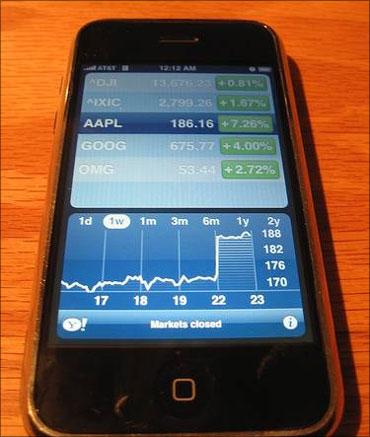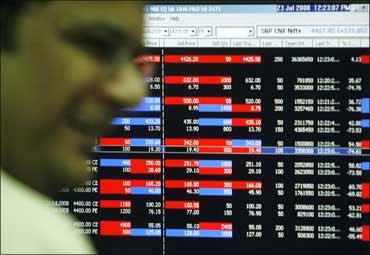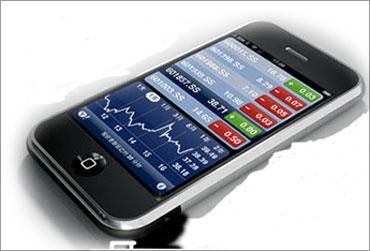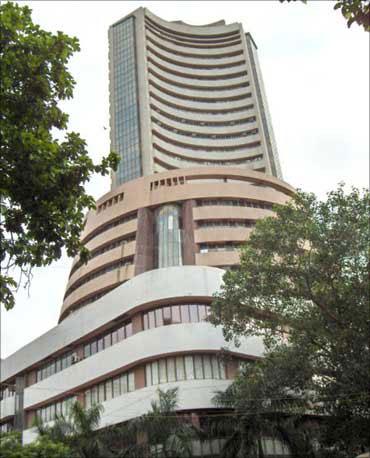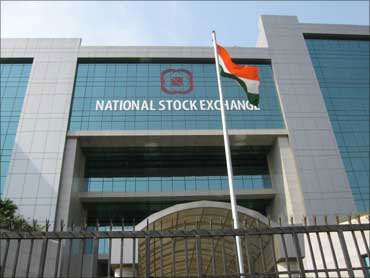 | « Back to article | Print this article |
Mobile trading of shares: What an idea, Sirji!
Technology is bringing in innovations into several areas of our lives. From shouting the quotes on the floor of the exchange to trading with your mobile handset, trading has come a long way! Asia's oldest stock market, the Bombay Stock Exchange (BSE), started trading in shares on mobile phones on September 21, 2010 while National Stock Exchange (NSE) plans to launch a similar service early next month.
This will only increase our dependence on the mobile!
The response for this mode of trading was overwhelming; on the first day itself 33 brokerage houses have gone online offering the service to their clients, at least 800 brokers are in line to provide this benefit; they have a choice of trading through proprietary software of BSE or those developed in-house by brokerage houses.Scalability
In India we have 650 million wireless subscribers, 10 million demat accounts and 9.5 million broadband subscribers. Mobile trading anticipates that demat account holders will enhance to the extent of 100 million within a span of one year.
As you read this, telecom operators are crunching numbers to device attractive schemes such that the subscribers enable their mobile trading feature.
One in 10 of the world's mobiles are sold in India, according to technology research specialists Gartner. The country adds 15-17 million new mobile subscribers every month. This only indicates the buoyancy of the phone sector, mobile trading will only try to tap into this vigorously growing market, thereby enhancing the equity investor community.
Industry estimates point out that online trading constituted 20 per cent of total market turnover at the exchanges. In 2003-04, it was just 3 per cent. This indicates a fast growing young urban populace which has been actively participating in equity investing by tech savvy means.Trading on the move
Both the BSE and NSE have tied up with local mobile phone operators and software firms to provide a real-time data feed and trading products. Users will now be able to buy and sell shares, view live index and stock prices, as well as get margin and net investment positions on their phones.
GPRS connection is needed to enable this method of trading. Most brokers provide downloadable application with real-time quotes and charts, advanced security features for secure mobile trading, hot keys are enabled to create user-friendly / fast trading etc.
Advantage retail investors
- Anywhere accessibility
- Timely availability of information
- Reduced dependence on brokers
- Less downtime
- Reduced human errors
- Increased market size
Disadvantages
- Technical snags
- Security Issues
- Network traffic / availability
- Risk of theft
Cost structure
Ideally mobile trading only involves cost of online access, that is, GPRS. One of the telecom service providers offers data download @ 20mb/1 Re. The client has to download the software on his mobile, subscribe to the GPRS facility and start trading.
All the other costs are to remain the same and the brokers provide this facility at no specific extra cost.
Key takeaways
- Recent move is set to increase the number of participants in the market
- Tech savvy investors have the option of now trading while on the move
- One needs to see if brokers charge any additional transaction fees; one should look at both broker side / telecom operator side costs and evaluate the cost-efficiency
- Users need to be wary of security aspects, especially in the case of mobile thefts. Passwords need to be handled with great care
Conclusion
This is a welcome move for the retail investors who are particularly tech-savvy; this move will also help take equity investor community to an entirely another level. This makes business sense, both for the mobile operators and for the broking company, as the penetration of mobile phones in India is very good.
However, it is yet to be seen how best security levels are upheld; telecom operators also need to ensure that there are no technical snags / network issues which crop up -- such intricate things could actually make or break the evolvement of this whole idea.
It is also to be seen if investors are comfortable with order placement on a comparatively small device. For many who prefer to make their own purchase/sale decision, it will only become more convenient.
However, mobile trading is unlikely to completely replace Internet trading or even telephonic order placement with the broker. What this does is to give more flexibility to the investor on the mode of order placement.
Anil Rego is the founder and CEO of Right Horizons , an investment advisory and wealth management firm that focuses on providing financial solutions that are specific to customer needs.
